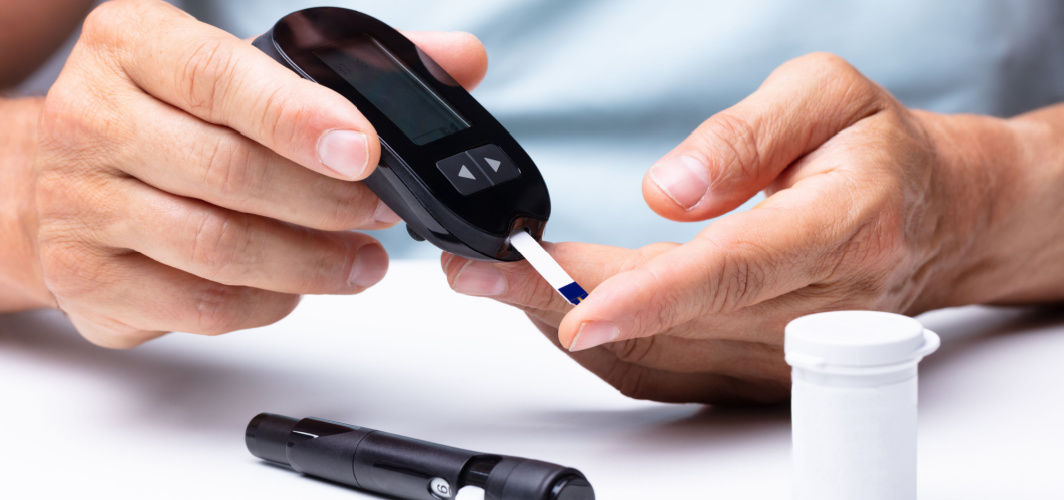Diabetes Management
Unhealthy Foods and Habits to Avoid to Prevent Diabetes
2 min read
By Apollo 24|7, Published on - 05 June 2024, Updated on - 07 June 2024
Share this article
0
0 like
.jpg?tr=q-80)
If you have a family history of diabetes, it’s time to take proactive steps towards your health. Navigating the path of well-being can become easier by identifying certain unhealthy habits and foods that may increase your risk of developing this metabolic disorder. Remember, the key is not just about avoiding but also about replacing these with healthier alternatives.
Minimise Ultra-Processed Food Consumption
The consumption of ultra-processed foods such as carbonated drinks, refined flour products, and breakfast cereals should be minimised. These items are associated with an increased risk of type 2 diabetes due to their high added sugar content and lack of nutritional value. Instead, opt for whole foods that are unprocessed or minimally processed, such as fruits, vegetables, legumes, and grains.
Limit Full-Fat Dairy and Processed Meats
Excessive consumption of full-fat dairy products can increase blood sugar levels due to their high fat and carbohydrate content. The same is applicable for processed and high-fat meats such as bacon, sausage, and fried meat dishes, which not only increase the risk of heart disease but also lead to fatty liver. In this case, moderation is key; however, it’s still better to make lean proteins your go-to choice.
Swap Refined Carbohydrates with Whole Grains
Refined carbohydrates such as white bread, pasta, and rice are other culprits that can increase blood sugar levels while providing little nutritional value. Better alternatives are whole grains such as brown rice, quinoa, and whole wheat bread that help maintain balanced blood sugar levels.
Adopt a Wholesome Lifestyle
Apart from dietary modifications, maintaining a healthy weight through regular exercise, getting enough sleep, and effectively managing stress levels are vital for decreasing the risk of diabetes. Remember, consulting your doctor about your family history and undergoing necessary screening tests are equally important.
In your journey towards a healthier lifestyle, consider signing up for the Apollo Super6 programme. Tailored to help individuals manage type 2 diabetes with lifestyle changes and personalised support, this programme focuses on improving diet, increasing physical activity, and providing ongoing assistance. Stay proactive and take charge of your health today.
Diabetes Management
Consult Top Diabetologists
View AllLeave Comment
Recommended for you

Diabetes Management
Diabetes, Smoking, and Your Health: Understanding the Connection
Smoking and diabetes - are two health risks that when combined, can lead to severe complications. Nicotine in cigarettes can raise blood sugar levels, worsening diabetes control. Quitting smoking, though challenging, is crucial in managing diabetes. It's a journey of small, consistent steps towards a healthier lifestyle. Always consult your doctor for personalised advice based on your health history.

Diabetes Management
Why Blood Sugar Levels are High in the Morning?
Many people have blood sugar levels in the morning because of the Dawn Phenomenon. This involves the release of hormones like cortisol and growth hormone in the early morning, prompting the liver to release glucose, leading to elevated blood sugar. To address morning hyperglycemia, individuals can adjust bedtime snacks, optimise medication timing, engage in regular exercise, make mindful dinner choices, stay hydrated, and monitor blood sugar levels.

Diabetes Management
Understanding Prediabetes and Metabolic Syndrome: The Common Ground
Prediabetes and metabolic syndrome are common conditions affecting many Indians today. While they might seem distinct, they often overlap and share many risk factors. Understanding these conditions, their connection, the importance of regular physical activity, a balanced diet, maintaining a healthy weight and how to manage them can go a long way in preventing serious health complications such as diabetes or heart disease.
Subscribe
Sign up for our free Health Library Daily Newsletter
Get doctor-approved health tips, news, and more.
Visual Stories

8 Fruits That are Incredibly Healthy for Diabetes
Tap to continue exploring
Recommended for you

Diabetes Management
Diabetes, Smoking, and Your Health: Understanding the Connection
Smoking and diabetes - are two health risks that when combined, can lead to severe complications. Nicotine in cigarettes can raise blood sugar levels, worsening diabetes control. Quitting smoking, though challenging, is crucial in managing diabetes. It's a journey of small, consistent steps towards a healthier lifestyle. Always consult your doctor for personalised advice based on your health history.

Diabetes Management
Why Blood Sugar Levels are High in the Morning?
Many people have blood sugar levels in the morning because of the Dawn Phenomenon. This involves the release of hormones like cortisol and growth hormone in the early morning, prompting the liver to release glucose, leading to elevated blood sugar. To address morning hyperglycemia, individuals can adjust bedtime snacks, optimise medication timing, engage in regular exercise, make mindful dinner choices, stay hydrated, and monitor blood sugar levels.

Diabetes Management
Understanding Prediabetes and Metabolic Syndrome: The Common Ground
Prediabetes and metabolic syndrome are common conditions affecting many Indians today. While they might seem distinct, they often overlap and share many risk factors. Understanding these conditions, their connection, the importance of regular physical activity, a balanced diet, maintaining a healthy weight and how to manage them can go a long way in preventing serious health complications such as diabetes or heart disease.

